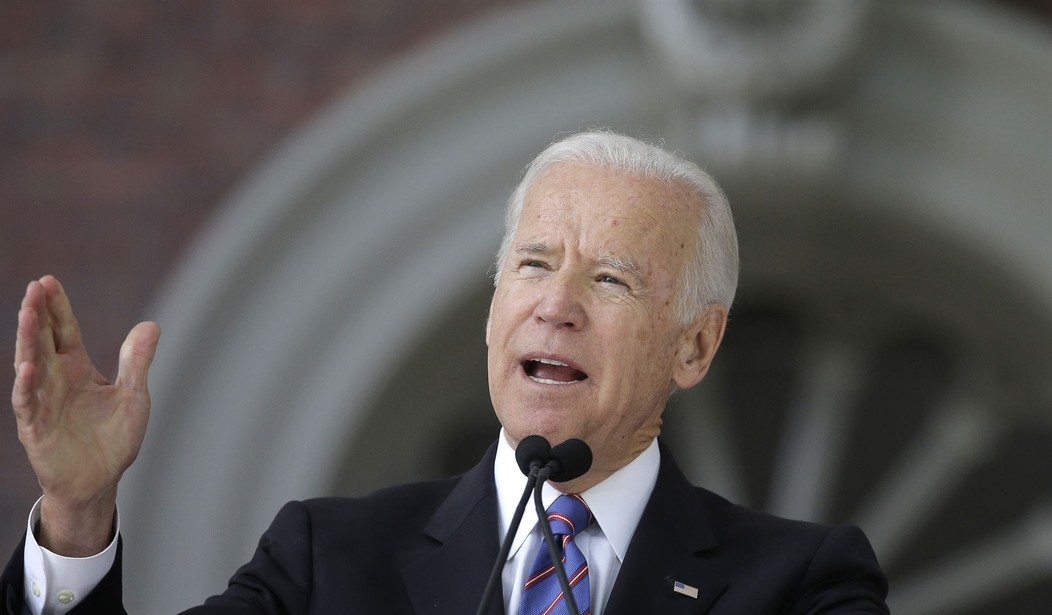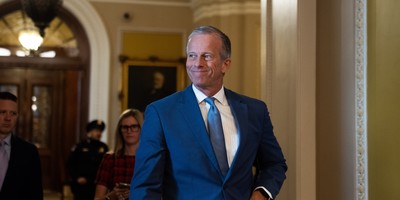Anti-abolitionists once called slavery America’s “peculiar institution” as a euphemism to shield the American public from a true understanding of its diabolical nature. Similarly, abortion activists use language like “choice” and “women’s health” to avoid deep moral questions about whether an unborn child should have the right to life. While many might blanch at such a striking comparison, the reality is that the similarities between our tragic legacy of slavery and our continued government-sanctioned support for abortion aren’t all that different.
As a rule of thumb, Westerners tend to avoid any attempt to compare today’s issues with the atrocities of human chattel slavery. In 2012, then-Vice President Joe Biden lashed out to an audience of African Americans, claiming that his Republican opponents were trying “To put you all back in chains.” Uproar emanated from commentators at the thought that a public leader would create a modern parity to slavery. Maybe the momentary outcry was well-placed. But it is naive to think that today’s society is so progressed as to be immune from moral lapses on par with chattel slavery.
Indeed, America has heartbreakingly embraced a new “peculiar institution” -- taxpayer-funded, on-demand abortion. Abortion today is Slavery 2.0.
Much of the abolitionist movement centered on renewing public understanding of personhood. Western slavery had thrived on a belief that black individuals were either unhuman or lesser humans. By shipping Africans like cattle and depriving them of the basic rights of their white brothers and sisters, they were stripped of their humanity and became objects for ownership. As long as slaves were an inferior life form, they were subject to an alternate ethic and bore the image of a lesser god. Politicians made bold assertions concerning the supposed economic benefits of slavery, seeing slaves as a commodity for exploitation.
Recommended
Ultimately, thanks to the leadership of English abolitionist William Wilberforce and others, this conception was eventually turned on its head. Once individuals began looking on their black counterparts as “men and brothers,” as the abolitionists insisted, the gravest injustices could no longer be tolerated. The institution of slavery had to topple; and topple it did. This was the inevitable result of a dramatic paradigm shift stemming from an understanding of life as it was intended to be.
It’s remarkable how much of the pro-slavery mindset can be applied to the modern practice of abortion. Abortion activists aim to shape the terms of the debate, referring to unborn babies as fetal tissue, embryos, and conceptuses rather than the more humanizing alternatives. Public discourse centers on the “rights” of the mother alone and ignores the rights of the child, resulting in simultaneous harm to both. We have normalized the death of millions by thinking of them as less than human. And to add insult to injury, well-meaning pundits argue that abortion mercifully prevents poor children from facing the struggles of life – much like slave-owners who pointed out the economic woes of freed blacks.
In the United States since Roe v. Wade, 60 million unborn humans have been enslaved to the convenience of those blessed with life. Sixty million babies have felt the grip of metal around their flesh, the creep of starvation and malnutrition, the saline kiss of death working them through. Sixty million lives taken before their time, and the largest proportion are African Americans. In New York City in 2012, more African American children were aborted than were born. We end life; and our realities are so distorted as to blind us to the horror of what we do.
There is no greater gift than that of life. How is it that we feel so free to define life as we wish, make it a slave to our passions and our afflictions, and end it at our beck and call? We – those gifted with life – commit crimes which slavery would have balked at and eugenicists have cheered, and we have created a dialogue to alleviate our consciences and lighten our hearts. We believe that we own life; and we can do with it as we wish. Sound familiar?
The position taken by this article will be seen by many as hateful, alarmist, or repressive; but such is not the fault of the position. Rather it is the fault of a broader social movement of radical, agnostic autonomy that has trained us to react without thinking – to decry pro-lifers while standing on a worldview of quicksand. Mothers of abortions deserve not our ire, but our compassion. They deserve our pity that they were directed to abortion doctors rather than family counselors, pity that they were told there was no better way than to cut loose the life inside them, pity that they endured an invasive procedure, pity that they must live with the memory of a life that should have been. These too are the victims. Our culture has trained us to see it otherwise, and against THAT we should direct our ire and our righteous indignation.
For Wilberforce, it was life that drove him to action. Ending slavery was only one part of a broader Reformation of Manners that defined his long career in public service. He spent much of his life being ridiculed as an extremist and an idealist for his tenacious defense of dignity. He was told that his defendants weren’t worth it, and that he didn’t care about the wellbeing of those “benefiting” from slavery and injustice. But in the end, he won; and we rightly look back at him as a colossus among statesmen – as the little man who broke the back of one of history’s foulest evils.
Some hills are worth dying on. Some causes are worth getting beat up for. May we not fall prey to a mindset that our evils are lesser simply because it is our century and not theirs. Rather may we wade through the fog of politics and ideology and see our evils for what they truly are; and may we seek to make our legacy one of victorious life. Future generations will thank us.

























Join the conversation as a VIP Member